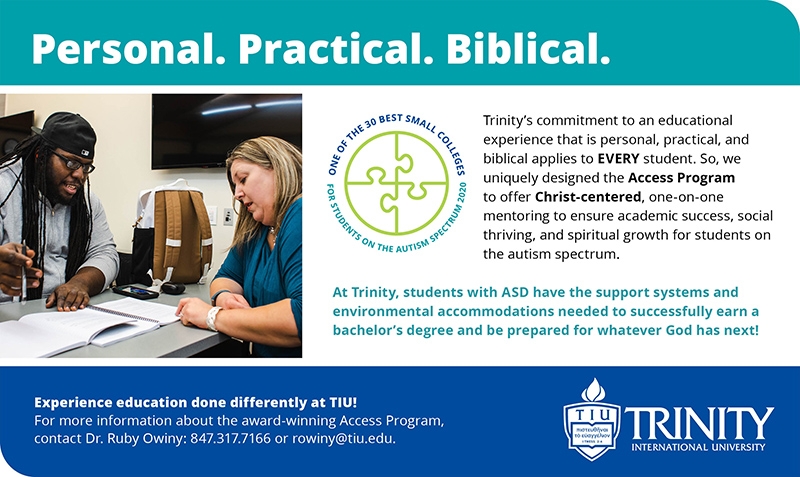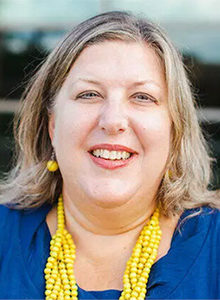Choosing a college requires careful planning. This planning often starts in a student’s freshman year of high school, but usually not later than their sophomore year. When a student is on the autism spectrum, transition planning is a high priority, indeed it is required by law. The Individuals with Disabilities Education Act (2004) stipulates that IEP teams must begin transition planning by the time the student reaches 16 years of age. In this transition plan, the student’s goals for postsecondary life are addressed and goals are developed to help the student achieve those goals (Learning Disabilities Association of America, 2013). It is during this transition period from age 16 to the time the student graduates from high school that families begin choosing a college.

Choosing a College for Your Student
While choosing a college, families may wonder what they should look for in a postsecondary setting to meet the goals and needs of their student. Of course, ensuring the university has the major the student desires is important. Beyond that, visiting the college to ensure the culture is what the student (and parents) desires is an important part of the process. Other factors may include identifying what opportunities exist for internships, international studies, and social life. The size of the college and how far from home the college is located are often important considerations, especially for a student with ASD who may require more parental support than a typical college freshman. In addition to these factors, cost, the financial aid package, and how well prepared graduates are for the workforce are considered. These are all valid and necessary considerations for all college-bound students. However, when a student is on the autism spectrum, more in-depth considerations should be addressed.
Specific Planning For ASD: What to Look For When Choosing a College
It is well documented that transitions are especially challenging for students with ASD (Hendrickson et al., 2017). It should be noted that while transition can be difficult and transition plans can often focus on the deficits needing to be addressed, every student with ASD is unique and capable of being successful with the appropriate accommodations and supports (Dymond et al., 2017). High school teachers and counselors, along with parents, can assist in preparing students for the transition to postsecondary life. They can help the student identify the things he does well and that will serve him well on a college campus. For example, he may be independent with caring for personal hygiene. This will be an area that is simple for the student to continue in college and parents can be assured their student will be able to independently shower, shave, put on deodorant and cologne or perfume, and wear clean clothes to class. However, maintaining a calendar with assignments and due dates could be a challenge for the student and something to work on in the transition plan.

Colleges can also support students in providing them an opportunity to visit the campus multiple times to become familiar with the location of important buildings for the student, such as the classroom buildings, library, dormitory, and cafeteria. They may also allow students to move in a bit early to have additional time to get settled in and familiarize themselves with the dorm and their new surroundings. Frequently, students can request a single or double room to best meet their needs. They may also have the option of choosing a dormitory with suites or a hallway with rooms opening into the hall, such as found in hotels.
Among the above-mentioned considerations, students on the autism spectrum need to be sure when choosing a college that they select on that can appropriately support them. Research identifies key needs for colleges to support students with ASD. How a college addresses these needs should be considered by students with ASD and their families. These supports should include social and emotional skills, executive functioning skills, functional life skills, residential life supports, academic supports, family involvement, vocational training, communication development, and transition need (Widman & Lopez-Reyna, 2020; Lubin & Brooks, 2021; Sefotho & Onyishi 2021).
For students with ASD, choosing a college that provides the supports they need is vital to their success. All post-secondary institutions in the United States are required to provide reasonable accommodations for students with any diagnosed disability when the students disclose a diagnosis (Americans with Disabilities Act, 1990). Students must self-disclose and provide documentation of their disability to the Office of Student Accessibility (Note: these offices are called different names in various institutions.). These accommodations can include additional time on tests, taking tests in an alternate location, note-takers, professor lecture notes provided to the student, and text readers, among others. It is important for students to meet with the personnel in charge of reasonable accommodations to discuss what has been helpful for the student’s success in the past. In addition to reasonable accommodations, the success of a student with ASD in successfully earning a bachelor’s degree depends on individual needs. Some of the supports a student may need include social skills groups, mentoring, training for resident assistants in the dormitories, tutoring, assistance in finding an internship, vocational training, and ongoing support during the internships. These features of an autism support program can provide what a student needs to have a successful and enjoyable post-secondary experience.
An Autism Spectrum Support Program
One such program exists at Trinity International University in Deerfield, IL, north of Chicago. The Access Program provides extended supports beyond what the college already offers. All students have access to reasonable accommodations with documentation of a disability. They can request a tutor for their classes in the tutoring center and, as needed, a mentor to help them with executive functioning skills, such as organization. Students also have the opportunity to get assistance with resume building and career coaching. Furthermore, the campus counseling center provides mental health counseling to the campus community, as well. The small student body size assists professors in knowing their students well which allows for opportunities for mentoring in their chosen major and receiving more personalized support during internships. A key feature of Trinity’s mission is a commitment to faith integration and developing men and women to integrate their faith into their lives. University personnel (e.g., residence life staff, professors) mentor students in their spiritual growth as well. There are opportunities through weekly chapel services and other groups for students to deepen their faith and develop friendships through those opportunities.
The Access Program extends these services to also provide social support through social skills training from the Graduate Assistant while also providing study tables for academic support. Study tables also include further development of executive functioning skills. The Access Program personnel work with each student to individualize supports needed for each student’s success. There is a minimum hour requirement for study tables per week for students to get support with executive functioning skills and academics. The hours required are scaled up or down depending on the needs of the student.
Peer mentors come alongside students in the program to eat meals, go to college events, run errands, etc. Mentors also frequently check in on students to ensure they are doing their laundry, keeping their dorm room clean, and monitoring their mental health as well as mentoring them in social skills and good academic study skills. Mentors frequently attend chapel with their student and provide rides to Sunday morning worship services in the broader community around the university. In sum, mentors essentially serve as a reliable friend to their student.
The Access program graduate assistant (GA) leads study tables for students to ensure they are keeping up with their assignments. The GA also meets regularly one-on-one with students to troubleshoot challenges they may be facing. This could be providing advice on a romantic relationship or helping to craft an email to a professor. It can also include helping the student to navigate a conflict with a roommate. The GA checks daily planners to make sure students have appointments, classes, assignments, and other necessary information recorded to help them plan and remember those tasks and activities. The GA follows up on issues that arise and serves as a liaison between students, their RAs, the director of the program, and other relevant campus personnel as needs arise.
Students are strongly encouraged to provide FERPA (Family Educational Rights and Privacy Act) permission for Access personnel to speak with parents when the need arises and with the student’s permission. Parent and family involvement has been identified as a key component to the postsecondary success of students with ASD (Widman & Lopez-Reyna, 2020), yet FERPA privacy rules can hinder that process. When students provide the permissions for university personnel to speak with parents on issues related to their academic and social success, this helps the Access team to provide improved services. Parents can often provide background information to help understand a situation or follow up with their child to help them be successful in navigating challenging situations or helping to hold them accountable to setting alarms for class or completing their tasks for the day.
Every student is different and brings gifts and talents as well as areas for growth to a college campus. Families should consider the needs of their student and the level of support necessary for the success of their student in the college setting. Programs will be similar yet have unique qualities that provide the added supports a student needs. It is important for families, in partnership with their student, their school counselor, and the IEP team, to explore the offerings of prospective colleges to determine which one can best support their student, given the unique strengths and areas for growth of their child. These characteristics will help to determine what supports are required for their successful completion of a degree.
Ruby L. Owiny, PhD, is Director, Access Program, Director, Division of Education, and Associate Professor of Education, at Trinity International University. For more information, contact Dr. Ruby Owiny at (847 317-7166 or rowinyt@tiu.edu.
References
Americans with Disabilities Act of 1990, Pub. L. No. 101-336, § 2, 104 Stat. 328 (2000).
Dymond, S. K., Meadan, H., & Pickens, J. L. (2017). Postsecondary education and students with autism spectrum disorders: Experiences of parents and university personnel. Journal of Developmental and Physical Disabilities, 29, 809-825.
Hendrickson, J. M., Woods-Groves, S., Rodgers, D. B., & Datchuk, S. (2017). Perceptions of students with autism and their parents: The college experience. Education and Treatment of Children, 40(4), 571-596.
Individuals with Disabilities Education Act (2004) 20 U.S.C. § 300.43.
Learning Disabilities Association of America (2013). Transition planning requirements of IDEA 2004. Retrieved from https://ldaamerica.org/info/transition-planning-requirements-of-idea-2004/.
Lubin, J., & Brooks, J. (2021). College students with autism: Navigating the bumpy road. College Student Journal, 55(3), 318-324.
Sefotho, M. M., & Onyishi, C. N. (2021). Transition to higher education for students with autism: Challenges and support needs. International Journal of Higher Education, 10(1), 201-213. doi: 10.5430/ijhe.v10n1p201
Widman, C. J., & Lopez-Reyna, N. A. (2020). Supports for postsecondary students with autism spectrum disorder: A systematic review. Journal of Autism and Developmental Disorders, 50, 3166-3178. doi: 10.1007/s10803-020-04409-3




